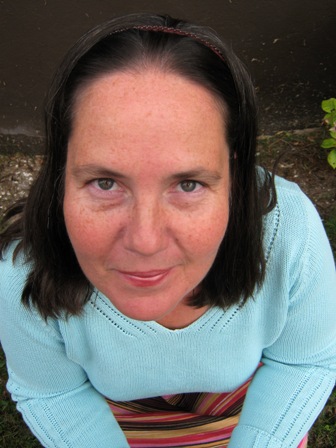|
Mariehamn 3.10.2013
Contemporary unemployement among the young is a grave problem;[1] it is so grave that young people in France have set themselves aflame in front of unemployment offices when having lost all hope. The problem, with its gendered dimensions, depending on the sectors hit by unemployment and cuts, is often described in standard terms such as ‘the gender gap in employment rates’, ‘limited participation of women and young people in the labour force’ and ‘economic dependence’. The response is very often ‘better career planning’, ‘more education’, ‘better contacts between the labour market and schools’.
In the present text I would like to broaden and deepen the description of the problem. An increasing number of young people feel alienated in our modern and efficient societies, among others when hit by unemployment or also when fearing unemployment, even if they are far too young to enter the labour market. The materialistic explanations of massive waves of destructive protests, so called riots, in Northern as well as in Southern Europe, also in our part of the world, are insufficient to capture the frustration and anger expressed by those often young participants. Have they all been misled?
In the Nordic countries, where the standard of living is generally high, in spite of immense problems for some groups, in particular lone mothers, Roma and migrant families, the rates of aggressive as well as self-destructive or apathetic psychiatric disorders among children and young people continues to increase relentlessly. So is the suicide rate. So is the number of young people recruited in extremist, violent groups on the right or the left on the political scale. This is perplexing for scientists. How can we explain this contrast between standard of life and youth unwellness?
I argue that the issue is in fact the following: how do we describe the value of a human being in our discourse about unemployment and exclusion? How do we conceptualise the human being in discussions about the position of the youth in our societies?
How can life be meaningful in a world where the purpose of our existence is outlined in terms of productivity, salary levels, efficiency and in general usefulness to our selves but above all usefulness to society? In such a world, the human being becomes objectified and instrumentalised into a tool of societal utilitarianism, useful for some goals which clash with counter ideas of ecological and human sustainability. Those who are in the labour force get sick because of the pressures in it; those who are excluded from the labour force get sick because of the perceived societal stigma of being useless, or even lazy.
Be useful, be useful, be useful…
For what?
Budgetary balance?
Promoting consumption?
Instead of simply addressing the symptoms of the above mentioned contemprorary phenomena we could rather work towards recognising the core characteristics of a human being. These characteristics form the essence of human dignity, beyond arguments of transcendental truth, or formalised legal guarantees of human rights.
These characteristics are rather simple, we take them often for granted, and they are:
- the capacity to think;
- the capacity to feel;
- the capacity to imagine.
None of them are necessarily observable by the surrounding society. None of them are necessarily understood as being immediately ‘useful’.
While educational systems address the first one, at least with regard to rational thinking, less attention is paid to the second, which is often considered to be limited to the so called private sphere. Today’s world is prone to so called action, i.e. outwardly observable activity, quantifiable, quick and efficient, with what is perceived as lots of impact; action at the expense slow and tacit contemplation, the results of which may take considerable time to experience.
Almost no attention is paid nowadays to the third one, imagination, even though it is perhaps the strongest of the characteristics of what it is to be a human being. The ability of thinking of something which does not exist, i.e. imagining utopias, is the strongest indicator of empowerment and a precondition for societal change. Because we are humans, we not only think, feel and imagine on our own. We also exchange impressions and fragments of thoughts, emotions and dreams.
In its work with developing methods of individual and structural empowerment, such as the girl- and boy group method, through the method of Fair Sex which targets sexual harassment in schools and through the foundational argument of a positive peace, the Åland Islands Peace Institute, is performing an act of creating spaces of dialectic imagination. Imagining and discussing a world less unequal, less excluding and less violent than today. Such individual and collective imagination is necessary if young people are going to continue to be able to overcome the adversities of unemployment fluctuations or other more personal failures.
We need to imagine such a world, as facts of today are depressing. Also in the City of Mariehamn prevails a spirit of un-explicable economic crisis, where cuts affect considerably activities and spaces for children and young people. The spaces of imagination, critical thinking and free speech and discussion are shrinking in our little town, in our Nordic societies, as in most parts of the world, and the power holders do not see the long term consequences of such decisions.
The need of spaces, physical and temporal, for thinking freely, for feeling and for imagining is acute and an absolute precondition for the long term survival of our societies and for the psychological sanity of our human species.
2013-10-03
Sia Spiliopoulou Åkermark
Associate professor
Director
For an overview of the knowledge and problems of psychiatric disorders among adolescent and children, see: Marianne Cederblad (prof. emeritus in child psychiatry, Lund University), Ungas psykiska hälsa förbryllar forskare, in Läkartidningen 2013;110:CC9C (in Swedish). http://www.lakartidningen.se/EditorialFiles/9C/%5BCC9C%5D/CC9C.pdf




